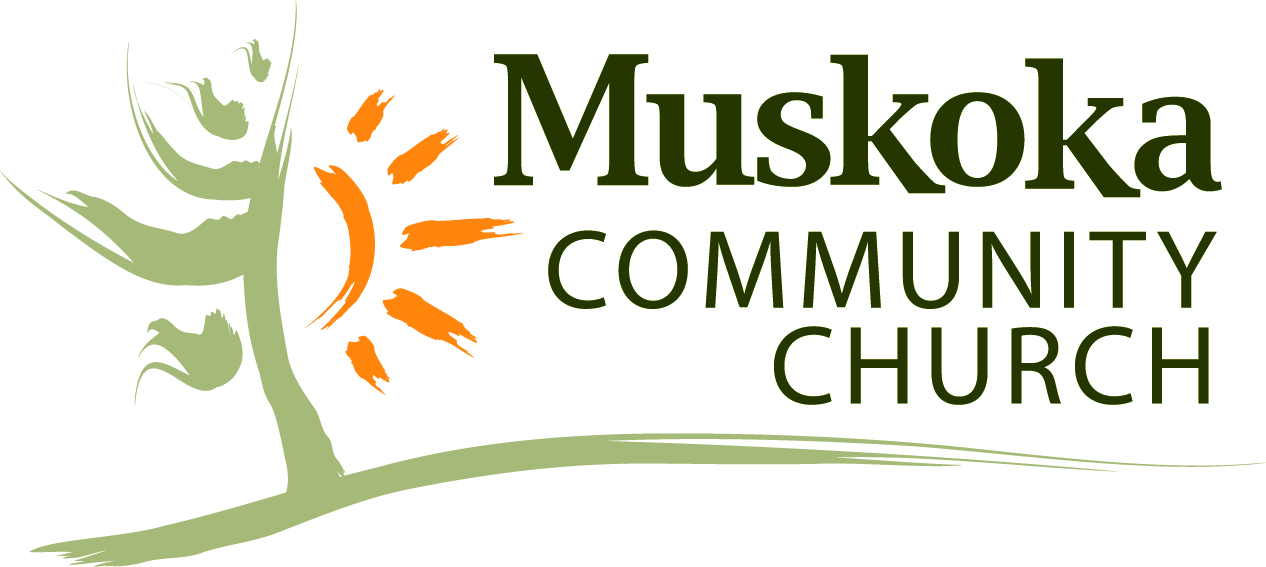Who We Are: Missional Clarity
/In an earlier post, I described how the initial “vision” for Muskoka Community Church was to quench the spiritual thirst of those who did not know God in Huntsville and the surrounding area. There were several other “signs” along the way that confirmed this, and so when we arrived in Huntsville, we were very clear on our target: people who didn’t already go to church. This was going to be “a church for people who weren’t ‘church people.’”
April and I had spent several years at Grace Community Church in Winchester, VA, a church plant led by Mike Woods that had been based on the Willow Creek seeker-targeted model. I remember them saying, “we’ll do anything short of sin to help people understand the gospel and join God’s family”—and they lived this out. They started services with relevant secular songs, because these could build a “bridge” into the world of those who might not know the religious songs. They used humour, drama, movie clips, and accessible language free of religious jargon. They served the community. They encouraged casual dress to make outsiders feel comfortable. They always made it clear that people at any point on their spiritual (and life) journey could come “as they were” and be welcomed and loved. At Grace, I learned what it was like to attend church with addicts, atheists, pluralists, seekers, new Christians who were getting it wrong, and old Christians who were both excited and confused by this “different kind of church.”
Coming to Huntsville, we knew this was the kind of church God had in mind—not necessarily a clone of Grace or the seeker model, which itself had greatly modified its strategy over the years, but one which kept its unique DNA. So from the beginning we made it clear—in our advertising, literature, and conversations—that we weren’t trying to attract Christians into a cool new church. I introduced myself to the other pastors in town, and explained we weren’t there to try to reach their members—and was welcomed with their support and prayers. When people did wander in from other churches, I would have frank discussions with them about why they should probably stay where they were (though recognizing that God was sometimes calling them to join us at MCC).
We advertised regularly in the newspaper and on the local secular radio station, and intentionally decided not to place ads on the Christian radio station. We sent out mailers to the community that invited non-churchgoers to try us out, offering events (our Easter Egg Hunt) and teaching series (“Why Church?”) that might be interesting to them. We spent thousands of dollars on advertising to non-Christians, and it was worth every dollar as we saw the Holy Spirit work through it to bring people into our services. We often started with secular songs, and every service was planned, prayed, and executed with the non-Christian visitor in mind. In the way we interacted with and presented ourselves to the community, I always said that I would rather be misunderstood by other Christians in town, than somehow offend or put an obstacle in the path of someone seeking God.
We were on a mission, and we were quite clear what that mission was. We weren’t trying to make our own “church people” happy or serve all of their needs, because we didn’t have any! If God sent us people who were already Christians, we invited them to join us in the mission. We made it clear that we were not just another churchy restaurant where they could come and sample our liturgical hors d'oeuvres, but a spiritual soup kitchen where we focused on nourishing those who were starving for God. If we got “fed” along the way (and we always did), that was a tremendous bonus.
Like most church plants, that initial clarity of target and purpose has faded over the years. We were forced into the “real world” of liability, insurance, budgets, buildings, personality conflicts, systems and structures—none of which are bad or unimportant, but all of which can distract from the clarity we had at the beginning. And of course, we faced the tension that all mission-oriented churches face regularly: How do we continue to reach more and more people with the Good News, while also meeting the ongoing spiritual needs of those who have joined us? It’s a valid question, but unfortunately can stray into the unhealthy consumer mindset of “how can we keep our members happy, since they’re the ones who pay the bills.” The problem is that the the church—and this church in particular—was not formed for the sake of its own membership, but of those on the outside.
More than a decade after those early days, I wonder what it would look like for us—with the benefits of established leadership, a permanent location, and a stable budget—to return to the kind of missional clarity we had at the beginning?
1 Corinthians 9:19-23
Though I am free and belong to no one, I have made myself a slave to everyone, to win as many as possible. To the Jews I became like a Jew, to win the Jews. To those under the law I became like one under the law (though I myself am not under the law), so as to win those under the law. To those not having the law I became like one not having the law (though I am not free from God’s law but am under Christ’s law), so as to win those not having the law. To the weak I became weak, to win the weak. I have become all things to all people so that by all possible means I might save some. I do all this for the sake of the gospel, that I may share in its blessings.

